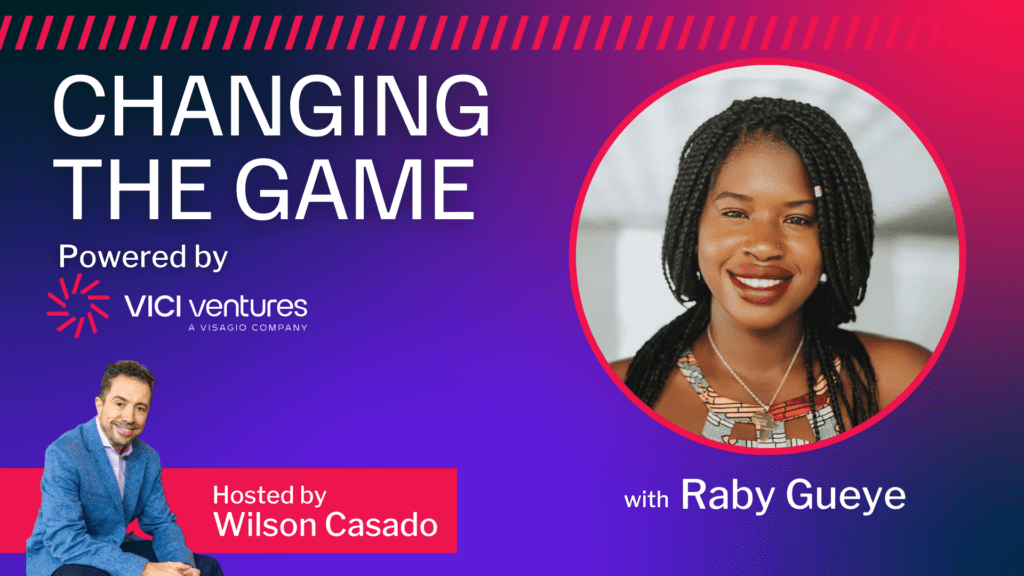Raby, the CEO of the non-profit organization “Teach for Senegal,” is not your average leader. Beyond her title, she is an educator, a devoted mom, a loving wife, and a dutiful daughter.
Her journey started in Northern Senegal, where she grew up in a close-knit farming community until the age of 8. Due to a border dispute with a neighboring country, her family was forced to seek refuge in Arizona, Texas. However, even amidst the challenges of displacement, Raby’s parents instilled in her the value of purpose, community, and service to others.
From a young age, Raby exhibited a strong sense of justice and a knack for questioning the rules. Her siblings often found her to be exceptionally argumentative, and she contemplated pursuing law school to fight for human rights and combat inequity, stemming from her own experiences as a refugee. However, her journey took a different turn as she pursued a major in Political Science and an undergrad in Global Studies, leading her to an eye-opening experience in the educational field through a non-profit organization.
Teach for Senegal
Teach for Senegal stands on the premise of reimagining education in the country, putting a strong emphasis on the involvement of the local community. The organization recruits, selects, and trains young individuals from the community to work in schools for at least two years. Following the Montessori educational philosophy, they seek to challenge the existing colonial system that does not foster critical thinking and perpetuates inequity. Raby firmly believes that change and development must start at the educational level.
The Montessori system resonates well with the indigenous African way of raising children, promoting independence and self-directed learning. It aligns with Raby’s vision of breaking free from the stereotypes that often overshadow Africa, depicting it as either a glamorous paradise or an impoverished land. She seeks to showcase the richness of African culture, language, and heritage, which remains obscured from the outside world.
Senegal, a country known for its peaceful history, gained independence in 1960, but it still faces various developmental challenges due to political issues and international interference. Raby’s decision to pursue further education at Stanford was driven by her desire to grow personally and develop a sustainable and scalable model for Teach for Senegal. Additionally, she aimed to raise awareness about the organization’s mission and impact.
The Challenges
Leading a non-profit organization comes with its own set of challenges. Raby recognizes that convincing others to value and invest in the lives of those they serve can be an uphill battle. Unlike for-profit businesses, the rewards are not immediate or monetary, making it difficult to demonstrate tangible outcomes. She places great importance on trust, emotional attachment, and faith from those who support her cause.
Nevertheless, the most rewarding aspect of Raby’s work is knowing that Teach for Senegal is transforming the trajectory of young lives by providing them with quality education and creating employment opportunities for the community’s youth. Through this impactful work, they are breaking barriers and empowering young individuals whom society previously overlooked.
Africa: The Continent of the Future
Raby firmly believes that the world underestimates Africa’s potential. The continent’s youthful population places it at a significant economic advantage, as young people will be the driving force behind labor and innovation. To harness this potential, Raby emphasizes the importance of equipping the next generation with the necessary skills and knowledge, especially a consciousness of the environment. Education remains a key component of this economic strategy.
How to help Teach for Senegal
For those who wish to contribute to Teach for Senegal’s noble cause, there are various ways to help. Donations can be made online, and reaching out to Raby on social media platforms like Facebook or LinkedIn is another means of showing support. Additionally, those with expertise and experience in relevant areas can offer consulting and advising services to further the organization’s impact. You can check their website here: https://www.teachforsenegal.org/about-4
Conclusion
Notably, Raby’s dedication to her work extends beyond the professional realm. As a mom with a six-month-old daughter, she understands the challenges faced by working parents. To create an inclusive environment, Teach for Senegal embraces the philosophy of “come as you are,” accommodating everyone regardless of their personal circumstances.
Raby’s story is a testament to the power of education and the transformative potential of visionary leaders. Through her unwavering commitment to reimagining education in Senegal, she is shaping a brighter future for the country’s youth and challenging the world’s perceptions of Africa. As Raby continues to break barriers and advocate for change, she reminds us all that education is the cornerstone of progress and the key to unlocking Africa’s true potential.


Recent Comments